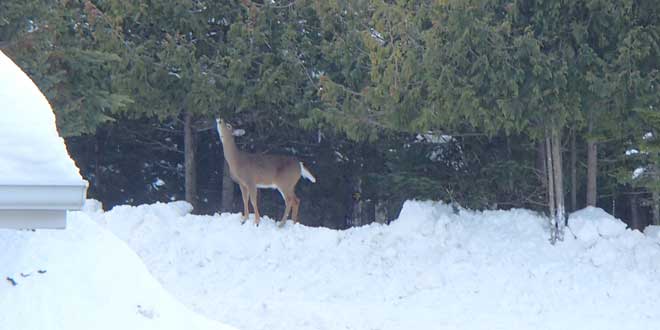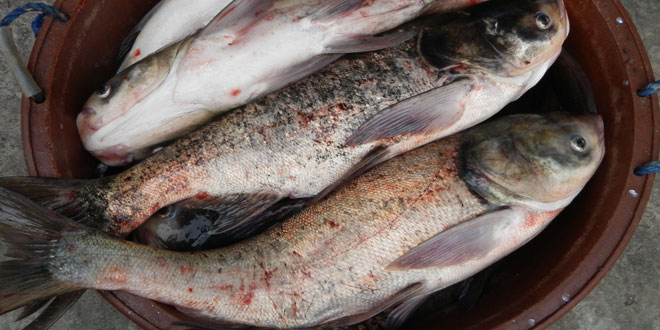MANITOULIN—Members of the Manitoulin Deer Management Advisory Committee and Manitoulin Area Stewardship Council have been informed by the Ministry of Natural Resources (MNR) that the ministry no longer has an emergency deer feeding program and that funds that would normally flow through the Ontario Federation of Anglers and Hunters (OFAH) will therefore not be provided.
Ian Anderson, a member of the committee, told the Recorder after the meeting last week, “It should be no surprise to anyone that we have more snow on the ground than we did three or four weeks ago. There is more than 20 inches of snow everywhere on the Island, but most places have between 24-30 inches of snow and in a few places there is even as much as 36 inches of snow. If the snow depths don’t get any deeper there is still a high probability the Island will lose some deer. We could see fawn mortality as high as 20-40 percent.”
“Since Christmas MASC has been asking local landowners to break trails for deer to access food sources,” said Mr. Anderson. “And supplementary feeding, cutting available browse on properties that contain large populations of deer, is very helpful––it goes a long way to assisting the deer.” The best way is to get some pruning equipment and prune available browse that’s over six feet, he said, noting the group is not advocating knocking down large trees.
“At the meeting the question was asked if the MNR would be involved in an emergency deer feeding program,” said Mr.Anderson. “We were told there is no money available and they are short on manpower. The decision has been made at the MNR provincial office that there will no longer be an emergency deer feeding program anywhere in the province. The stance is to let nature take its course, which I don’t find palatable. I have to question what the mandate of the MNR is if they collect hunting licence revenues and recoup benefits for wildlife, but will do nothing in this case to help and manage the herd.”
“They (MNR) can’t manage the resource, deer in this instance, if they aren’t going to do anything to help them,” said Jim Sloss, chair of the United Fish and Game Clubs of Manitoulin. “I just wish they (MNR) had been honest and up front and told us a month or two ago that they wouldn’t be able to help. You can’t have a million dollar boost in the economy with a deer hunt if you don’t have deer.”
“They (MNR) take a lot of money in hunt licence fees and this would have been a real good time to show their appreciation for our support and help us to help the deer,” said Bobby Tuomi. “Instead, the ministry doesn’t want to be part of helping out the deer population.”
“In my estimation we are going to lose at least 6,000 deer this year,” said Mr. Tuomi.
Sue Meert, deer save project manager, said that she has received positive response from property owners for permission to allow for trail breaking on private lands, and for supplementary feeding, but as much support as can be mustered is required this winter. She can be contacted online at manitoulindeersave@gmail.com or phone 705-859-1187. As well, local residents can access proper deer feeding techniques through a ‘How to Save Deer’ video on the MASC website, www.manitoulinsteward.org.
The video provides instructions on proper deer feeding techniques, from browse to emergency feeding. Ms. Meert said it is important to remember not to feed deer then stop once the deer become used to the help. “It can be deadly to deer if this is not done right,” she said.
“The decision was made at the meeting that for Manitoulin to continue to advertise that this is a tough winter on deer and there is the potential it could be a bad winter and ask and encourage members of the public to break trails for the deer to get from one food source to another,” said Mr. Anderson.





